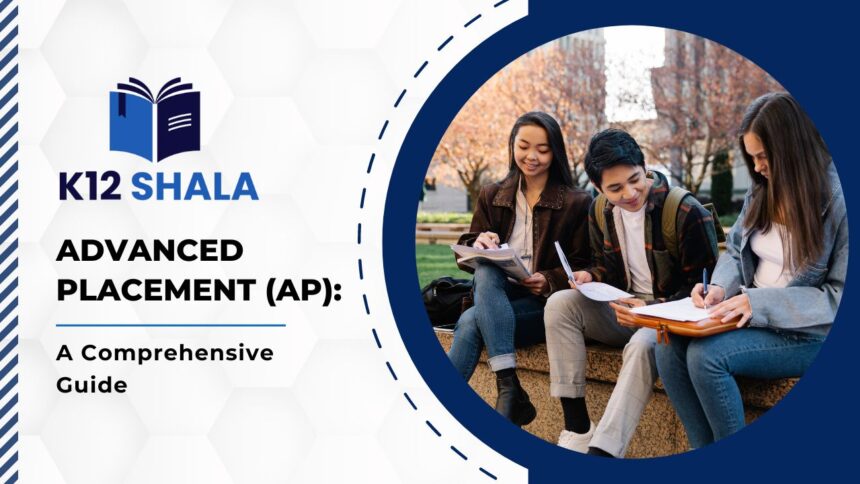Are you a high school student looking to challenge yourself academically and stand out to college admissions teams? If so, Advanced Placement (AP) courses might be just what you need. Dive into this comprehensive guide to learn all about the benefits of AP courses, how to choose the right ones for you, and how to prepare effectively for those crucial AP exams. Let’s unlock the secrets of excelling in AP together!
What is Advanced Placement (AP)?
Advanced Placement (AP) courses are college-level classes offered in high schools, allowing students to delve deeper into subjects and potentially earn college credit. These courses cover a wide range of topics, from English Literature to Physics, providing a rigorous academic experience. Taking AP courses can demonstrate your willingness to challenge yourself and showcase your dedication to learning.
One key aspect of AP courses is the opportunity they provide for advanced placement or course credits at many colleges and universities. By scoring well on the corresponding AP exams, students can potentially skip introductory college classes and save both time and money in their higher education journey. Additionally, excelling in AP courses can strengthen college applications by showcasing intellectual curiosity and readiness for higher-level coursework.
Advanced Placement offers motivated students a chance to push themselves academically while reaping potential benefits when it comes time for applying to colleges.
Introduction to Advanced Placement (AP)
Are you a high school student looking to challenge yourself academically and stand out on college applications? Advanced Placement (AP) courses might be the perfect fit for you.
Introduction to AP: AP courses are college-level classes offered in various subjects, allowing students to delve deeper into their areas of interest while earning college credit if they perform well on the corresponding exams.
These courses are designed to provide a more rigorous academic experience compared to standard high school classes, preparing students for the challenges of higher education. By enrolling in AP courses, students can demonstrate their willingness to push themselves intellectually and excel in challenging environments.
Not only do AP courses showcase your academic abilities, but they also offer unique learning opportunities that go beyond traditional classroom settings. Whether you’re passionate about history, science, math, or literature – there’s an AP course tailored to suit your interests and ambitions.
Benefits of Taking AP Courses
Taking Advanced Placement (AP) courses offers a plethora of benefits for high school students looking to challenge themselves academically.
AP courses provide an opportunity to delve deeper into subjects of interest and gain college-level knowledge while still in high school. This can help students stand out on college applications and demonstrate their willingness to tackle rigorous coursework.
Moreover, by successfully completing AP courses and exams, students may earn college credit, potentially saving time and money on higher education expenses down the road.
Additionally, participating in AP classes can enhance critical thinking skills, improve time management abilities, and boost overall academic confidence. Students who excel in AP courses often develop stronger study habits that can benefit them throughout their academic careers.
The benefits of taking AP courses extend beyond just earning credits; they foster growth, challenge intellectual limits, and pave the way for future success.
How to Choose Which AP Courses to Take
Choosing which AP courses to take can be a crucial decision for high school students. Start by considering your interests and strengths – select subjects you are passionate about or excel in. Research the available AP courses at your school, taking into account prerequisites and course requirements.
Consult with teachers, counselors, or peers for advice on which courses align with your academic goals. Think about how each AP course relates to your intended major or career path if you already have one in mind.
Consider the workload of each AP course – balance challenging subjects with manageable ones to avoid feeling overwhelmed. Remember that colleges often look favorably upon students who challenge themselves academically but also value a well-rounded education.
Choose AP courses that not only showcase your abilities but also provide a fulfilling learning experience throughout the school year.
Preparing for AP Exams
Preparing for AP Exams can be a challenging yet rewarding experience. The key to success lies in effective time management and strategic study habits. Start by creating a study schedule that allocates specific blocks of time for each subject. Utilize resources such as practice exams, review books, and online tools to familiarize yourself with the exam format and content.
Focus on understanding key concepts rather than rote memorization. Engage in active learning techniques like teaching the material to someone else or creating flashcards to reinforce your knowledge. Don’t wait until the last minute to cram – spread out your studying over weeks or months leading up to the exam date.
Join study groups or seek help from teachers if you encounter challenging topics. Stay organized, maintain a healthy balance between studying and self-care, and approach the exam day with confidence knowing that you have put in the effort necessary to succeed.
Common Misconceptions about AP Courses and Exams
One common misconception about AP courses and exams is that only straight-A students can succeed in them. In reality, AP courses are designed to challenge students at different academic levels, providing an opportunity for growth and development.
Another misconception is that taking AP courses will guarantee college credit. While many colleges do offer credit for high AP exam scores, policies vary widely among institutions. It’s essential to research individual colleges’ requirements before assuming credits will transfer.
Some believe that taking multiple AP courses is the only way to stand out on college applications. Quality over quantity is crucial here; admissions officers value a well-rounded student with diverse interests rather than one who overloaded on AP classes without depth of involvement.
There’s a myth that scoring a 5 on every AP exam is necessary for success. While a high score can be advantageous, it’s not the sole indicator of understanding or mastery of the material. The journey of learning and growth throughout an AP course holds significance beyond just the final exam result.
Alternatives to AP Courses
Considering alternatives to AP courses can provide students with a diverse range of academic opportunities. One option is dual enrollment programs, where students can earn college credits while still in high school. These programs offer a taste of higher education and can be an excellent way to challenge oneself academically.
Another alternative is International Baccalaureate (IB) courses, which are known for their rigorous curriculum and focus on global perspectives. IB courses emphasize critical thinking skills and interdisciplinary learning, making them attractive to students interested in a holistic approach to education.
For those seeking career-specific training, vocational or technical courses may be the way to go. These hands-on programs equip students with practical skills that can lead directly to employment opportunities after graduation.
Exploring different educational pathways beyond AP courses allows students to tailor their learning experience to match their interests and goals effectively.
Conclusion
Advanced Placement (AP) courses offer students a valuable opportunity to challenge themselves academically, earn college credit, and stand out in the college admissions process. By choosing the right AP courses, adequately preparing for exams, and dispelling common misconceptions about the rigor of these classes, students can excel in their academic pursuits.
While AP courses may not be suitable for everyone, there are alternative options such as dual enrollment programs or International Baccalaureate (IB) courses that also offer rigorous curriculum choices. It’s essential for students to weigh their interests and goals when deciding whether to pursue AP coursework.
Whether you decide to take AP courses or explore other challenging academic paths, remember that your education is a journey of growth and discovery. Embrace opportunities that push you beyond your comfort zone and empower you with knowledge and skills that will shape your future success. Good luck on your academic endeavors!










